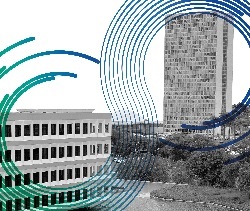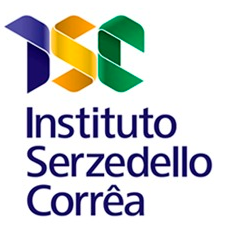Tribunal de Contas da União
ChatTCU: integration of the tool into the Court’s systems improves the use of generative artificial intelligence in external control activities
In 2023, the Brazilian Federal Court of Accounts (TCU) adopted a personalized artificial intelligence (AI) model built on natural language processing. The virtual assistant, named ChatTCU, was developed based on the ChatGPT tool from the US laboratory OpenAI. Launched internally in February, the tool is currently operating on its third version, ChatTCU v3.
ChatTCU ensures enhanced security by operating within the Microsoft cloud rather than in a public environment. Additionally, chats are protected by contract, safeguarding the confidentiality of the information provided by users. The current version of the tool is integrated with TCU's systems. The answers generated are based on the Court's cases, selected precedents, and administrative system, as well as the extensive knowledge base of the very model on which ChatGPT is based.
ChatTCU v3 is based on GPT-4 32k, which grants better quality to the answers provided and fewer chances of errors or hallucinations (inaccurate or unrealistic answers). The use of the application makes it possible, for example, to select information from audit documents, find precedents, convert complex data into plain language texts, make translations and revisions, consult administrative information, among other actions.
Exclusively designed for internal work, ChatTCU, developed with generative AI, has been utilized by more than 1,400 users, including interns, employees, and public servants. From June to November of this year, over 17,000 chats were registered, involving the exchange of over 50,000 messages. Currently, approximately 80 new chats with around 500 messages are exchanged daily.
"By integrating the tool with TCU's systems, an auditor can both consult our administrative system and gain insights into a particular audit. It is possible, for example, to extract data and information on the subject in order to plan the work," explains the Court's Head of the Department of Information Technology and Digital Evolution, Rainério Rodrigues.
According to Rodrigues, the TCU was the first body in Brazil to recognize the need to internalize this technology. "We embraced this technology before any other entity considered it. This initiative was based on the following premise: this is a technology that is here to stay, and we need to be prepared to use it consciously, understanding its potential and risks, and raising awareness to our staff on the best way to use it", he points out.
The latest version of ChatTCU was presented to TCU’s teams in October. During the meeting, different applications relevant to external control were demonstrated. These included requesting a summary of a case document and making adjustments to the text generated based on improvements to the command given to ChatTCU; asking for help for administrative services; placing technical questions related to the work of the TCU, which generates a detailed and referenced response, specifying the court decision that served as the basis for the answer.
During the meeting, there was also an emphasis on the significance of users providing feedback on their experience, as it is fundamental to the tool's evolution.
The TCU has also been sharing its experience with ChatTCU with other public administration bodies. Recently, the Court has presented the tool to 80 federal institutions.
TCU’s model has been developed based on the implementation of a Work Group and intense debate
In February of this year, the Court created a Working Group (WG) to discuss and assess the risks and opportunities of using generative AI at the Court. Made up of representatives from various areas of the TCU, the multidisciplinary team has been holding regular meetings and promoting workshops and debates with public servants, employees, and interns from the Court and other institutions that also use AI writing assistants.
"The group was created to promote the safe and appropriate use of artificial intelligence tools at the TCU, taking full advantage of the benefits of such solutions in the most responsible way, acknowledging the reality of their use. We discussed and studied the GPT technology with our IT team and came up with the model implemented at the Court", says Rodrigues.
What to expect in the future?
ChatTCU will undergo upgrades as new functionalities are developed. These new versions will facilitate, among other things, the expansion to internet searches for accessing up-to-date content, the capability to respond to queries, integration with other TCU systems, and the generation of consultations and cross-references in databases using natural language. Beyond these innovations, there is the possibility of incorporating audit standards into ChatTCU in the future to provide guidance for the Court's work.


